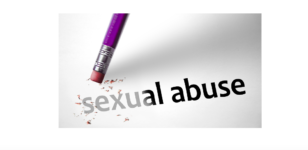Porter Sets Precedent Which Could Undermine National Redress Scheme

“We are of the view that recent events including the Christian Porter case confirm the legitimacy and appropriateness of the position we have taken regarding not joining the National Redress Scheme,” reads a statement issued by spiritual group Kenja Communications issued on 4 March 2021.
The statement was published on the day after Australian attorney general Christian Porter appeared before the press to announce that he’s the alleged perpetrator in a 33-year-old rape claim, as well as to categorically deny the accusations.
Having had multiple sexual assault allegations raised against its founder, Kenja makes note of Porter’s assertion that the presumption of innocence and the burden of proof are reasons why the historic claim shouldn’t give rise to an independent investigation.
The spiritual organisation also raises Porter’s position on not standing down from office in response to the allegations as it could undermine the authority of the law in this country.
And in citing the AG’s arguments, Kenja maintains that they’re all reasons lending support to its decision not to join the National Redress Scheme as it has been expected to.
“In our respectful opinion,” the statement continues, “if it is proper for the attorney general to invoke the rule of law, it is also proper for us.”
For the sins of institutions
A recommendation of the Royal Commission into Institutional Responses to Child Sexual Abuse, the National Redress Scheme was established on 1 July 2018, as a means to provide closure, justice and compensation for an estimated 60,000 victim-survivors of institutional child sex abuse.
The scheme provides redress in the form of recognising and acknowledging abuse suffered, providing access to counselling, requiring a direct personal response from the institution and a compensation payment of up to $150,000.
Huge numbers of Australian organisations freely registered to join the scheme prior to the 31 December 2020 cut-off date. If an organisation doesn’t join, the Department of Social Services publicly names it, as those seeking redress from an unregistered organisation miss out.
Good for the gander
Right now, Kenja remains the only organisation holding out on joining the scheme, while still having the ability to compensate victims.
“Anyone can contact the scheme and say that they were abused as a child and without due process, in fact it appears without any real process, can receive up to $150,000 compensation,” said Kenja.
The organisation, which has often been referred to as a cult, added that it finds it ironic that Porter pushed for the redress initiative, when he was social services minister.
Established in 1982, Kenja has long been plagued by child sexual abuse claims, with founder Ken Dyers having faced multiple cases and numerous charges.
Dyers was acquitted of most charges. He was only ever convicted of one, but this was overturned in the High Court. Other charges weren’t subsequently pursued due to mental health concerns. And in 2007, at the age of 85, Dyers took his own life, after being notified of a new sexual assault allegation.
The eroding rule of law
The woman who initially raised the sexual assault allegations against Porter took her own life in June last year. And as NSW police hadn’t taken an admissible statement from her, it cannot pursue an investigation.
The anonymous document outlining the allegations distributed to the prime minister and other federal politicians called for an independent inquiry into the matter, in a similar manner to the investigation into harassment claims against former High Court judge Dyson Heydon.
Despite widespread calls supporting an inquiry, the PM has ruled it out, claiming it would undermine the rule of law.
Porter has since filed to sue the ABC over a 26 February article, which didn’t name the attorney general as the alleged perpetrator, but, he argues, did identify him.
However, the nation’s chief lawmaker is likely undermining the authority of the law in avoiding an independent inquiry, refusing to stand aside from office, and then pursuing a defamation case designed to bury the matter in the very court where he’s responsible for the appointment of judges.
And to have an organisation knee-deep in historic child sexual assault claims, citing his argument as justification for not compensating victim-survivors, reveals that the erosion of the rule of law in this country is already well underway.







